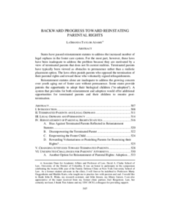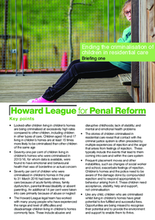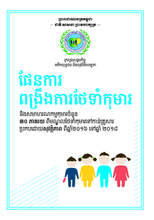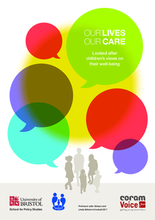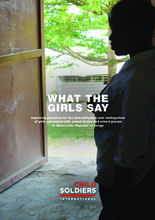Displaying 771 - 780 of 991
This study contributes to the emerging body of South African literature on care leaving, as it explores the future selves and resilience factors of young people who are still in residential care and who are about to exit the statutory system.
This article examines the legal inadequacies of reinstatement statutes in the US which "often punish parents who opposed the termination of their parental rights and reward those who voluntarily signed relinquishments."
This is the first in a series of briefings to be published alongside a programme of research and campaign work to end the criminalisation of children living in residential care. The project builds on from research published in March 2016, which found that children living in children’s homes in the UK were being criminalised at much higher rates than other children, including those in other types of care.
The main focus of this article is on the effects of intrastate war and the reintegration of Liberian child soldiers into their families and former communities.
This Action Plan for improving child care, with the target of safely returning 30 per cent of children in residential care to their families 2016 - 2018, was developed to support the implementation of the Ministry of Social Affairs, Veterans and Youth Rehabilitation (MoSVY) Work Platform 2014–2018 and the Sub-Decree 119 on the Management of Residential Care Institutions, which was endorsed on 11 September 2015.
The present study tested whether family finding, as implemented in North Carolina from 2008 through 2011, improved child welfare outcomes for youth at risk of emancipating foster care without permanency.
This paper presents qualitative findings of the resilience processes of young women who have left the care of Child and Youth Care Centres in Gauteng, South Africa.
This report summarises the findings from the 611 children and young people who completed the Bright Spots’ ‘Your Life, Your Care’ survey on their experiences in care.
This report presents the findings of research conducted by Child Soldiers International to assess the effectiveness of release, psychosocial recovery and reintegration interventions (commonly referred to as ‘DDR’) for girls associated with armed groups in eastern Democratic Republic of Congo (DRC).
This collection of poetry and writing throws the spotlight on living 'in care' - a subject rarely explored in literature and yet experienced by more than 60,000 children in the UK every year.

